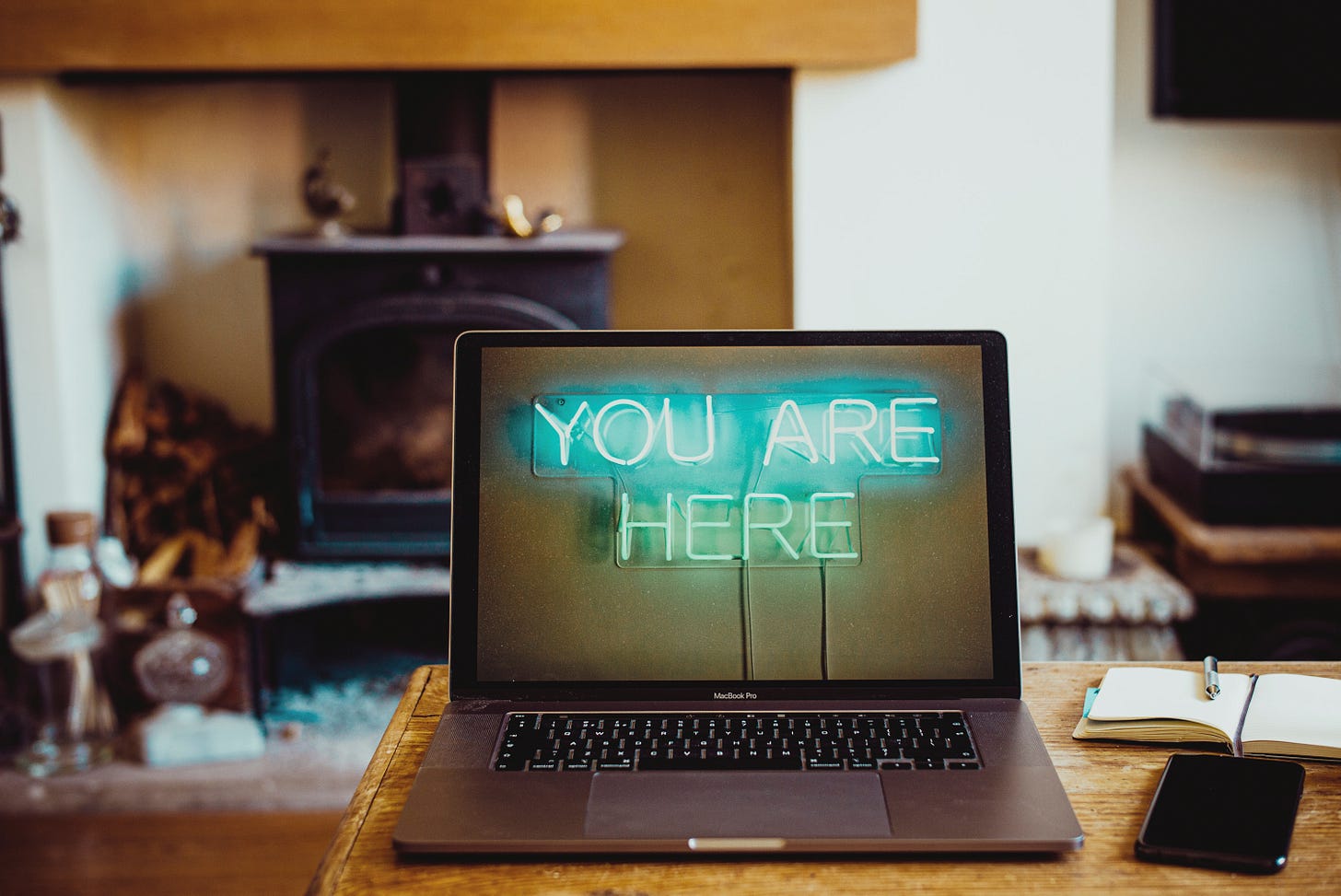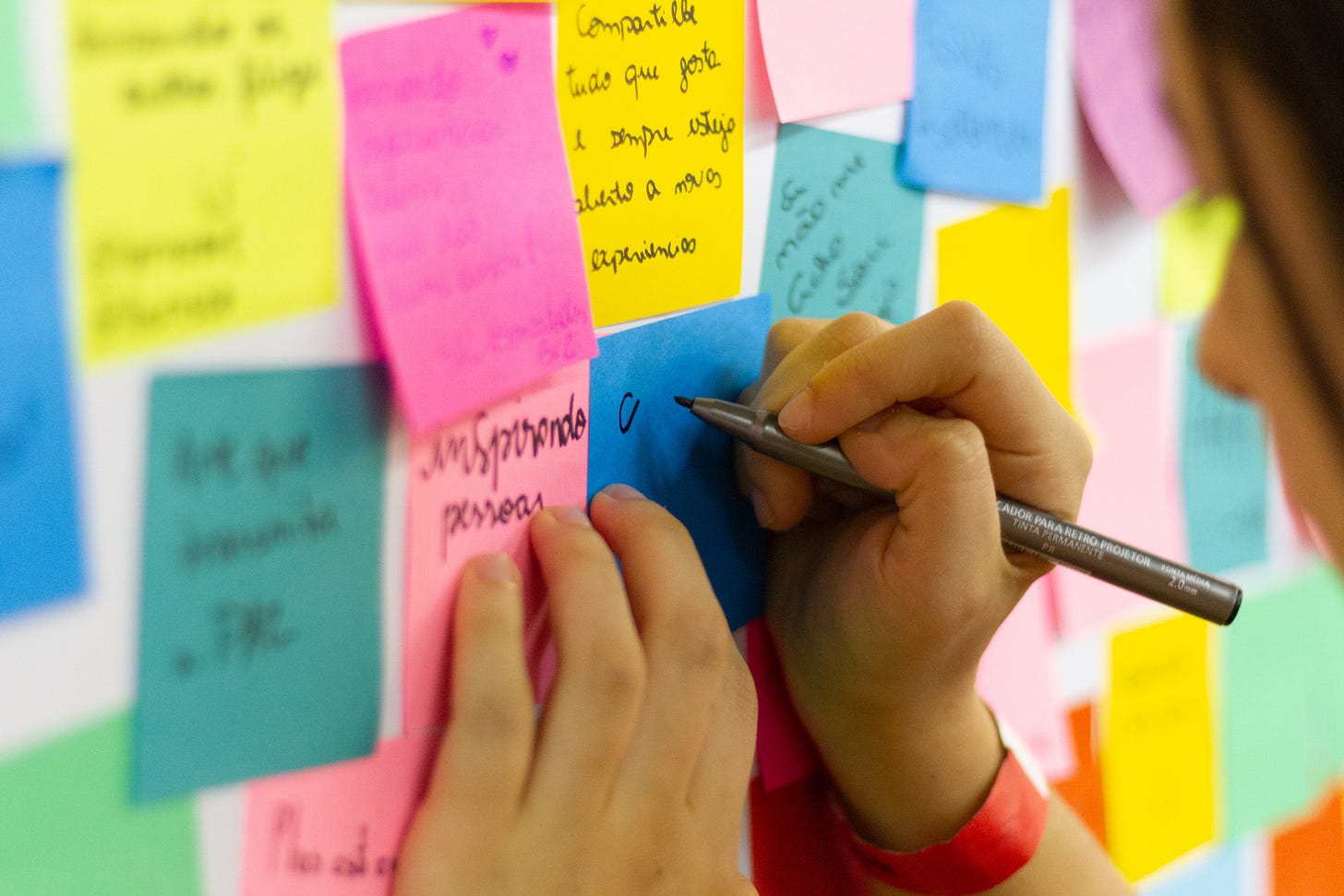Writing & Editing the Personal Statement
Some thoughts on submitting stellar personal narratives for grad school applications
There are so many different parts to applying to graduate school, scholarships, and fellowships, and those of you who have taken my classes know that I have an opinion about pretty much everything. In this post, I want to focus on the one part this process: writing, editing, and submitting the absolute BEST personal statement you can.
(Skip to the end for the list of professional editors!)

You are here:
You created a list of your skills, important experiences, and accomplishments. You wrote your resume (and ideally had it edited by the Career Center). You talked to or emailed with multiple people in different positions and graduate programs for career advice. You weighed all your options and finally decided on a route to take: a specific set of graduate programs or fellowships you want to apply to.
You have a list of all the programs or fellowships you will apply to, with deadlines and requirements. And, you reached out to the people you want to write you letters of recommendation about two months in advance of the deadline and gotten confirmation that they are willing to write compelling letters for you.
You know all of the grad school programs or fellowships you are applying to will require a personal statement. And so, you open an empty document and stare at the blinking cursor.

Start Writing!
Go back that list of your skills, experiences and accomplishments. In bullet points under each item, write out a couple sentences describing the CONCRETE ACTIONS and EVIDENCE that prove you have that skill. Each sentence should start with “I” and be followed immediately by a verb that you could imagine seeing in a movie.
Organize Your Sentences
Once you have chunks of writing, you can start assembling them into paragraphs. Each paragraph should have a theme! One paragraph might prove you have research and writing skills; another might show you interact well with the people you serve. Maybe you have another paragraph that shows how you take initiative, and another on your community work. Your topic sentence for each paragraph will introduce the theme of the current paragraph and should flow naturally from the previous paragraph.
By the end of this process, you’ll have a bunch of rough paragraphs that follow your experiences, strengths, and accomplishments. You can then write a paragraph that connects you to specific details about the graduate or fellowship program you are applying to.
Just a note: in a personal statement, you should add information about what you overcame to get to where you are. Just make sure that it doesn’t take up the whole statement. What you have actually done with your life says a lot about how you have overcome your circumstances, no matter what they were or are. At the same time (and it makes me cringe to write this)—if you grew up in a mixed status household (or you yourself are undocumented); if you grew up in rough neighborhoods; if you worked multiple jobs at a young age; if you are a person of color in predominantly white spaces, etc, etc, etc, your personal statement might be the only place you can share that information. These experiences give you unique perspective and make you valuable to the graduate programs you are applying to.
Take a Break, then Edit
Once you have assembled your statement, take a break from it. Spend a week binge-ing a TV show or reading a novel! Go hike and run and make cookies and rest.
Then, come back to it with fresh eyes and start editing your sentences and paragraphs and the whole statement for grammar and flow. I highly recommend showing your statement to your friends and family members at this point. If your 66-year old grandmother and your 16-year old cousin can both understand what you’re trying to get across, you’re probably doing alright.
Hiring a Professional Editor
You should keep editing your statement until you feel like you’re about 80% satisfied with it. At this point, you need trained eyes on your work. One option is contact the Career Development Center at Cal State LA to see if they can provide you feedback.
The other option is to hire a professional editor. I started paying for an editor seven years ago, and I will never go back. I also have found out over the years that EVERY GREAT WRITER PAYS EDITORS TO FIX THEIR WORK. Every single one of them! Basically, the great secret of success is hiring someone to help you make your materials the best they can be.
Hopefully, you’ve made it this far in my newsletter, because for you, my dear and beloved students, the precious beings who make my career so fulfilling, I have reached out to my favorite editors and negotiated reasonable prices for you to access their services. If you mention that Prof. Akhila Ananth at Cal State LA referred you, each of these editors should offer you a price between $50-$75 to edit your personal statement.
MJ VanDevere (email me so I can send you the specific offer letter they sent me!)
Jordan Beltran Gonzalez (my editor!)
Lawrence X. Lan (my editor’s highly recommended colleague)
Geneva L. Sarcedo, PhD (a colleague who is university administration)
Sunny Chan, PhD (message through linkedin for initial contact)
Click around and see which editor feels right for you! I’m also happy to help you decide which one to hire. But I’ll leave you with this: I would not have the job I have right now if I hadn’t hired an editor to work with my job application materials, and I wish I had used that resource earlier in my career. Your application will be infinitely more competitive, and you will feel confident knowing that your materials represent you as the skilled and studious future graduate student you are.




